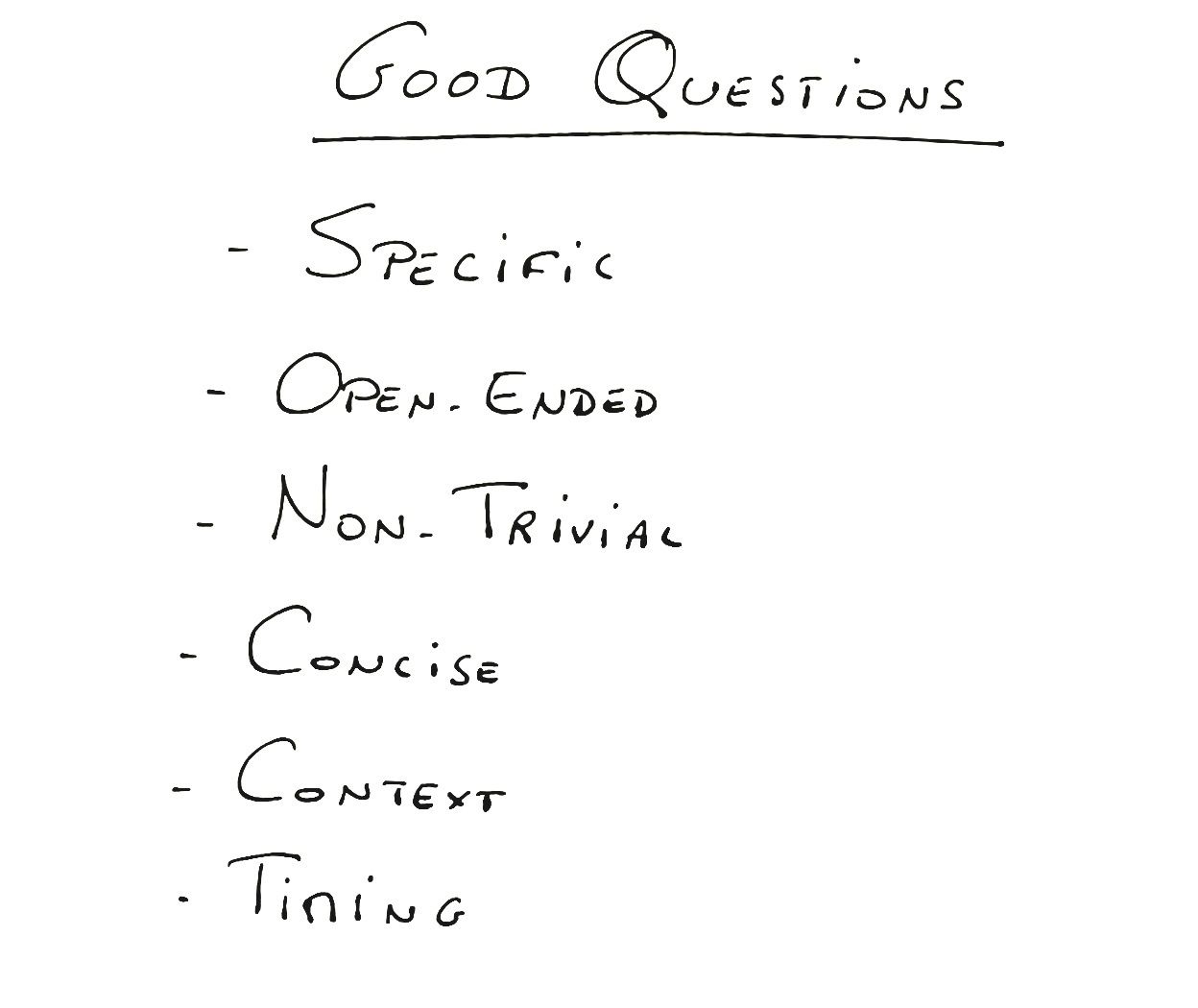Hey there!
Can you ask good questions?

How to ask a good question
Do your teachers dread opening every mail you send?
Do they avoid your gaze in class?
Yesterday a friend of mine, a professor at the local university, was complaining about the questions students email him.
He showed me some of them.
Yikes

Bad question seen in the wild
Between one guy asking for a summary of last week's classes and another asking about future exam questions, my friend was getting frustrated.
In this week's newsletter we'll talk about how to ask good questions.
It's a valuable skill for college students to develop.
(It's a valuable skill for everyone, not only students)
It leads to enhanced learning, clearer understanding, and improved relationships with professors.
(and a better GPA)

One of the key principles of asking good questions is being prepared. Before attending a class or meeting with a professor, review the material and identify areas of confusion or topics you would like to explore further.
More specific and targeted questions are usually better questions.
Good questions are often open-ended and require more than a simple yes or no answer.
Instead of asking closed questions that limit the response, strive to ask questions that promote critical thinking and encourage a detailed explanation.
Such questions will lead to deeper discussions and a greater understanding of the subject matter.
Questions that can be easily answered by referring to the course materials or lecture notes are a waste of time.
For your professor AND for you.
Those are trivial.
Before asking a question, make an effort to find the answer independently.
This not only shows initiative but also allows your professor to focus on more complex or challenging questions.
Be concise and clear.
Long and rambling questions are confusing and will result in unclear responses.
Your professor won't understand your question.
Because halfway through your question he'll be daydreaming about his upcoming holidays.
(or his growing list of unanswered emails)
Provide context and background information.
Give an example. It will help your professor better understand the context of their inquiry.
You'll get a more targeted and helpful answer.
Are you mindful of the timing when asking your questions?
Interrupting a lecture or a discussion will disrupt the flow.
It is best to wait for an appropriate time : a designated Q&A session, office hours, or after the class.
Do those things and your professors will give you answers that are actually helpful.
Your GPA might go up too.
See you next week!
After class news
